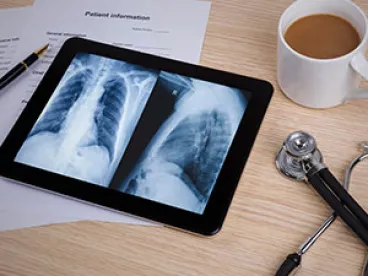Despite popular opinion, lawyers and judges are human and sometimes the facts of a case make it near impossible for judges to play the role of the modest umpire calling balls and strikes described by Chief Justice Roberts in his confirmation hearing. Sometimes, bad facts make bad law because the plaintiff is so sympathetic that the just ruling may not be the “right” one. Fachon v. U.S. Food and Drug Administration et al., appears to be the epitome of this.
Earlier this year, a 20-year old man, Eugene Neil Fachon, was diagnosed with Diffuse Intrinsic Pontine Glioma (“DIPG”) a form of brain cancer for which there is no cure. His doctors told him he had only three months to live. At the time of his diagnosis, Mr. Fachon was pursing an engineering degree at Northeastern University in Boston. While his fellow college students were trying to figure out where to go for spring break, Mr. Fachon was trying to figure out what to do next in light of his grave prognosis. Instead of undergoing the standard treatment, radiation, which may have had the potential to extend his life for up to three additional months, he decided to participate in a clinical trial that was intended to investigate the efficacy of Antineoplaston therapy. The clinical trial was being performed pursuant to an Investigation New Drug Application (“IND”) that was in effect, pursuant to 21 CFR 312.40, at the time Mr. Fachon was enrolled.[1] Mr. Fachon enrolled in the study on March 13, 2016, becoming the first and only subject enrolled. On or about the same day Mr. Fachon began receiving the investigational drugs, April 21, 2016, FDA placed a clinical hold on the clinical trial and ordered the study site to stop administering the investigational drugs to Mr. Fachon.
After being unable to convince FDA to allow him to continue receiving the investigational drugs, despite the clinical hold, Mr. Fachon filed suit seeking a preliminary injunction, a permanent injunction and temporary restraining order prohibiting FDA from enforcing its clinical hold and requiring FDA to allow him to continue receiving the investigational drugs. Mr. Fachon argued that FDA violated his due process rights under the 5thand 14th Amendments because FDA failed to notify Mr. Fachon of its intent to impose a clinical hold and grant Mr. Fachon an opportunity to be heard. On May 17th, Judge John J. McConnell, granted Mr. Fachon the temporary restraining order he requested.
In granting the temporary restraining order, Judge McConnell concluded that once Mr. Fachon started participating in the clinical trial, he had a protectable interest in continuing his participation that entitled him to due process. The key aspects of due process are notice and an opportunity to be heard. Thus, Judge McConnell concluded that before FDA could take away Mr. Fachon’s right to continue receiving the investigational drugs, FDA may have been required to notify Mr. Fachon and provide him an opportunity to convince FDA otherwise.
However, other than concluding that this right arose once Mr. Fachon started receiving the study drug, Judge McConnell did not provide much of explanation about this right, including the source of this right or the scope of the right.
I am not saying that Judge McConnell was wrong in granting the temporary restraining order, to the contrary. I agree that the balance of the equities favored granting the temporary restraining order, but Judge McConnell could have (and I think should have) granted the temporary restraining order without reaching the conclusion on the merits of the case and without concluding that Mr. Fachon was entitled to due process.
Because Judge McConnell chose to recognize this right, this case has the potential to significantly impact how clinical trials are conducted. To the extent participants in clinical trials are entitled to due process, some questions will need to be answered, including:
-
Would subjects who benefit from the investigational product during the study be entitled to continue receiving the investigational product until it is approved by FDA? This is not an unusual concept as other countries grant subjects this right already.
-
How does this impact an investigator’s ability to remove a subject from a study without the subject’s consent? An informed consent is required to describe the “[a]nticipated circumstances under which the subject’s participation may be terminated by the investigator without regard to the subject’s consent.”[2]However, an informed consent cannot include any language through which a subject waives any of his or her legal rights.
-
Before FDA places a clinical hold on a study that includes a requirement that enrolled subjects stop receiving the study drugs, will FDA be required to notify all study subjects and provide them an opportunity to be heard before the clinical hold goes into effect?
These are complicated issues that are best suited for legislative and regulatory solutions. Therefore, hopefully the parties and the judge can find an appropriate resolution to this case that allows Mr. Fachon to pursue this experimental treatment without opening up Pandora’s box.
[1] Although the Plaintiff’s motion characterizes the clinical trial as “FDA-Approved”, FDA does not necessarily “approve” clinical trials. Rather, FDA regulated clinical trials must be performed pursuant to an IND that is “in effect” and an IND is deemed to be effective the earlier of 30 days after FDA receives the IND or FDA notifies the clinical Sponsor that the clinical trial may begin.
[2] 21 CFR § 50.25(b)(2)




 />i
/>i

